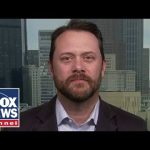In a recent discussion that captured the attention of viewers, Republican Congressmen Byron Donalds and Senator Ron Johnson shed light on their thoughts regarding the Democratic Party’s current challenges and the state of American democracy. The conversation kicked off with Senator Johnson addressing concerns about how Democrats, particularly Adam Schiff from California, failed to grasp the electorate’s priorities after they seemed to dismiss pressing issues like open borders and rampant inflation. These matters appear to weigh more heavily on voters than the Democrats’ narrative concerning Donald Trump and their definition of democracy.
Senator Johnson expressed disbelief that Democrats still seem in the dark. He argued that the transformation President Obama spoke of, which Biden attempted to implement, has mainly resulted in chaos across the nation. The senator pointed out that Americans are keenly aware of the consequences of Biden’s policies, which have led to an alarming increase in living costs and a diminishment of national strength on the global stage. Johnson went as far as to claim that Biden’s presidency is on a trajectory to become one of the worst in American history, a title he believes will stick unless significant changes occur promptly.
Meanwhile, Congressman Donalds took a hard stance on the financial implications of the Biden Administration’s actions. He highlighted that the Democrat-led spending spree on various causes—including overseas support like Ukraine and social programs—has made addressing domestic issues like illegal immigration seem financially impossible. Donalds emphasized that while the cost of addressing immigration and border security may appear steep, estimated between $80 to $100 billion, it is a small price compared to the ongoing financial burden of keeping illegal immigrants in the country. He stressed the need for a robust repatriation strategy that could save taxpayers money in the long run.
Senator Johnson offered his insights into the grave spending issues plaguing the nation. He pointed out the staggering increase in federal expenditures from $4.4 trillion in 2001 to over $7 trillion today. Johnson argued that the government needs to budget smarter, returning to pre-pandemic spending levels while ensuring essential programs like Social Security and Medicare are maintained. He likened financial mismanagement to a family continuing to spend beyond its means, even after recovery from a financial crisis—an unsustainable path, indeed.
As the talk shifted to immigration policies, Congressman Donalds noted potential conflicts brewing within the Republican Party over H-1B visas. Traditionally, the MAGA faction has been suspicious of these programs because of their impact on American workers. Donalds insisted that border security should be the top priority before delving into immigration reforms. He framed these reforms as necessary but cautioned that they should never come at the expense of American jobs. Johnson echoed this sentiment by reiterating the importance of a coherent immigration system that protects American jobs while still allowing for necessary talent to fill gaps in the workforce.
In summary, Republican leaders are keenly aware of the challenges ahead as they aim to reshape policy and spending following years of Democratic strategies that many see as detrimental. The overarching theme among them is the need for a serious rethink of how money is allocated, how immigration is managed, and who priorities should serve. With a focus on protecting American workers and cutting down on excessive spending, it seems the party is gearing up for some serious legislative battles shortly. And as the clock ticks down to future elections, one thing is for certain: they’re ready to fight tooth and nail for issues that matter to their constituents.




